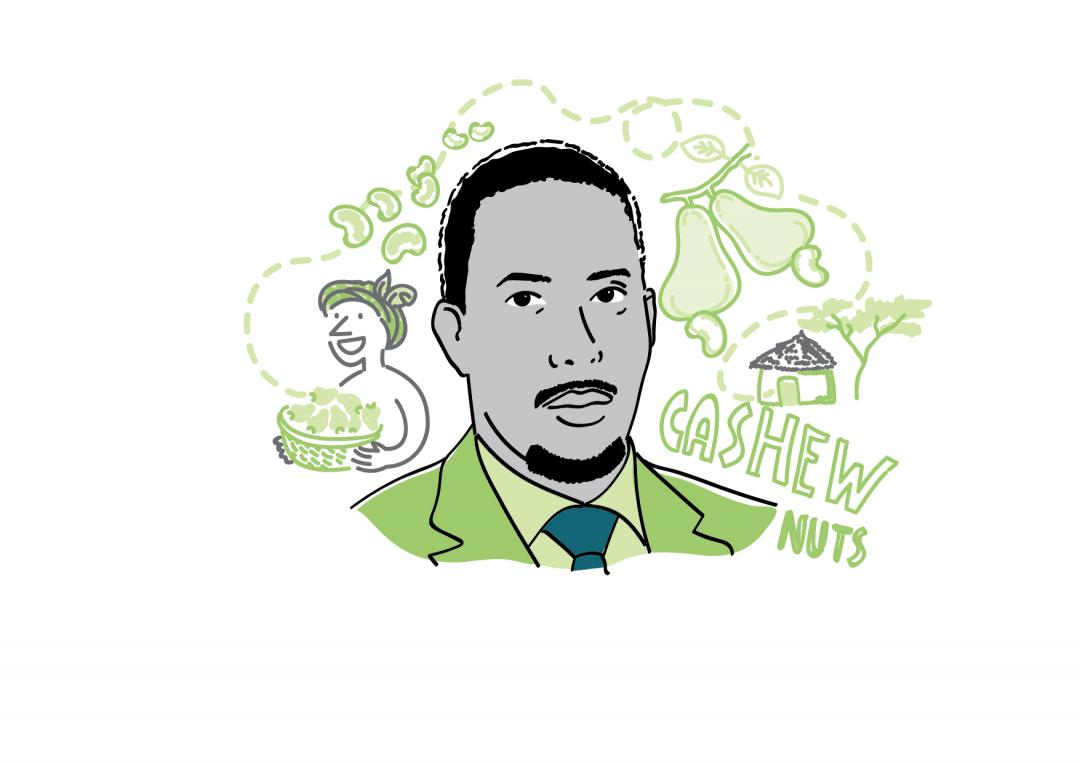More cash for women in Tanzanian cashew production
How are you achieving impact?
Impact is built into our business model. We wanted to do business in a way that improved the lives of the smallholder cashew farmers and women's processing groups that we work with. We work with these women's groups to help them add value to their own cashews. It’s something that they were already doing, but their biggest challenge was, "Where do we sell this when we've added value?" We just said, "We're going to buy everything that you produce." Since they remove the shell, it's a value added product, so we're able to pay them a lot more for it. In addition, we provide them with small machines to make the work easier for them and to make it more productive. A lot of it was being done by hand. The impact is then both the increasing income of these farmers and these women's groups and the easing of very intensive work.
Improving productivity gives them time to do other things, to take care of the kids, take care of the family, take care of their farms. Another impact is that kids go to school instead of having to contribute family labor to this work.
Why is it important to think specifically about women when you seek impact?
Engaging women is important when we talk about development because women are the cornerstone of communities and of households. We listened to the women that we work with and asked them about their goals and what their idea of success was. Women want to be able to send kids to school, to build a home and provide for their families. These are the kinds of things that have a huge impact on the community.
We must engage women and make sure it's a level playing field. Often they just don't have the same access that men do; access to land for women is a big challenge. We actively try to make sure that it's balanced. If women aren't coming for training, why are they not coming? How can we make this training more accessible for them? We have to ask these kinds of questions and use that lens to make sure they are well accounted for and well-represented.
Is there anything you would like to add that I have not asked about?
We're doing a lot of work on the ground with these communities, but now we're creating a product that we can take to the consumer and make the consumer part of this value chain.
Now consumers are much more engaged, much more discerning. They want to know where their food comes from, they want to know the sustainability of the food. They want to know how that farmer is being treated or the conditions that it's produced in. We can connect the consumer all the way back to the farmer using technology. For example, we've developed a blockchain technology with a startup in the Netherlands where each pack of roasted cashews has a QR code that you can scan and see exactly which farmer it came from.
You can see when we bought it, read their story and see their photo and the goal is to get to a point where you can tip the farmer just like you would your barista.
Blockchain is a big buzzword in technology innovation right now, but it’s great to see this real world example of how it will help your business.
It’s a new part of our business and something that we've just developed. I think this is the direction we have to go. We need to shed light on the sustainability of products. Consumers want to know more. That is the key now. If we can engage the consumer, then we can see a real transformation of an entire value chain and entire sector. At the end of the day, where you put your money can change the world.
